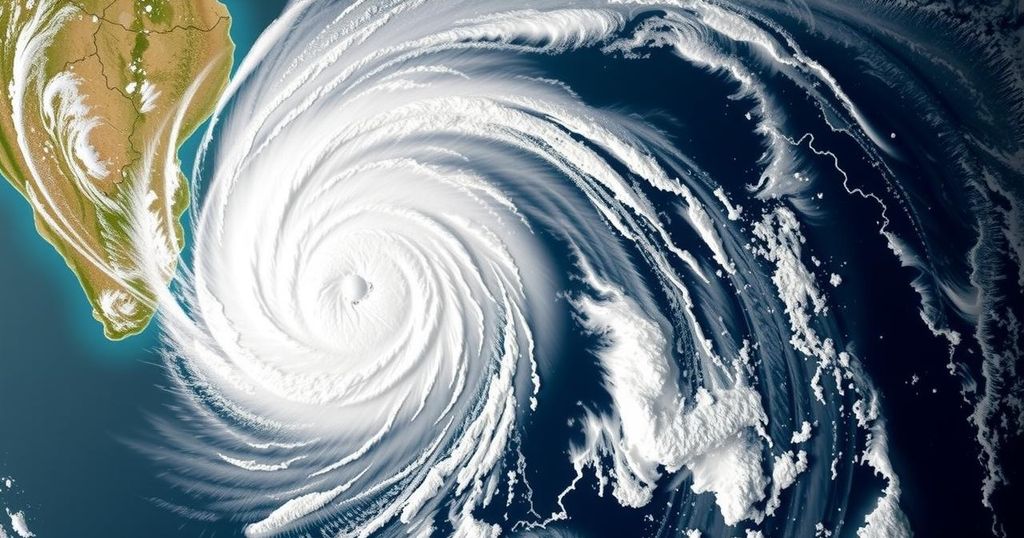Cyclone Chido Causes Devastating Impact in Mayotte and Threatens Africa’s East Coast

Cyclone Chido has devastated Mayotte, causing casualties and significant destruction. High winds have led to fatalities, damaged essential infrastructure, and prompted emergency responses. The cyclone is moving towards mainland Africa, with Mozambique facing potential severe impacts. Rescue efforts are ongoing amid fears of further humanitarian crises due to climate change-related cyclone severity.
Cyclone Chido has wreaked havoc on the French territory of Mayotte in the Indian Ocean, resulting in significant casualties and widespread destruction. French officials report that the cyclone, with sustained winds exceeding 220 kph (136 mph), has left several individuals dead, although precise figures remain unavailable as rescue operations are ongoing. French Interior Minister Bruno Retailleau indicated that initial assessments have shown the island is devastated, and fears persist regarding the extent of the fatalities. Prime Minister François Bayrou confirmed the destruction of numerous public facilities, including the hospital and airport, exacerbating the crisis for a population already living in precarious conditions.
As the cyclone progresses toward Africa’s east coast, authorities are mobilizing resources to assist affected regions. French President Emmanuel Macron is monitoring the situation closely; meanwhile, 1,600 law enforcement officers have been deployed to maintain order and assist with recovery efforts. The airport has suffered substantial damage, prompting initial restrictions to military traffic until further assessments can be made. In neighboring Comoros, alerts have been raised as the storm approaches, leading to protective measures such as the closure of ports and schools.
Forecasters predict that Chido will make landfall in Mozambique soon, with warnings indicating that up to 2.5 million individuals might be impacted. In addition, both Malawi and Zimbabwe are preparing for potential flooding and possible evacuations. The cyclone season, typically from December to March, has seen several powerful storms in recent years, which are becoming increasingly severe due to climate change. These events pose an ongoing risk of flooding, landslides, and outbreaks of waterborne diseases, further straining the resources of already vulnerable nations in southern Africa.
Cyclone Chido serves as a stark reminder of the growing threats posed by climate change, particularly in cyclone-prone regions like southern Africa. This area encounters a severe cyclone season from December through March, during which communities often find themselves ill-equipped to cope with the devastating impact of such natural disasters. Previous cyclones, such as Idai in 2019 and Freddy in 2022, resulted in significant loss of life and infrastructure damage, highlighting the precarious situation faced by nations with limited resources. The convergence of natural disasters and inadequate preparation heightens the risk of humanitarian crises, especially in impoverished countries that contribute minimally to climate change yet bear the brunt of its consequences.
In conclusion, Cyclone Chido has significantly impacted Mayotte and surrounding regions, resulting in fatalities and extensive damage to infrastructure. The situation remains dire, with authorities scrambling to provide assistance as Chido approaches mainland Africa. This disaster illustrates the pressing challenges posed by climate change and the urgent need for international support to aid vulnerable communities grappling with the aftermath of such catastrophic events. The risks of future cyclones and their effects on public health and safety necessitate ongoing vigilance and preparedness.
Original Source: www.cnn.com







